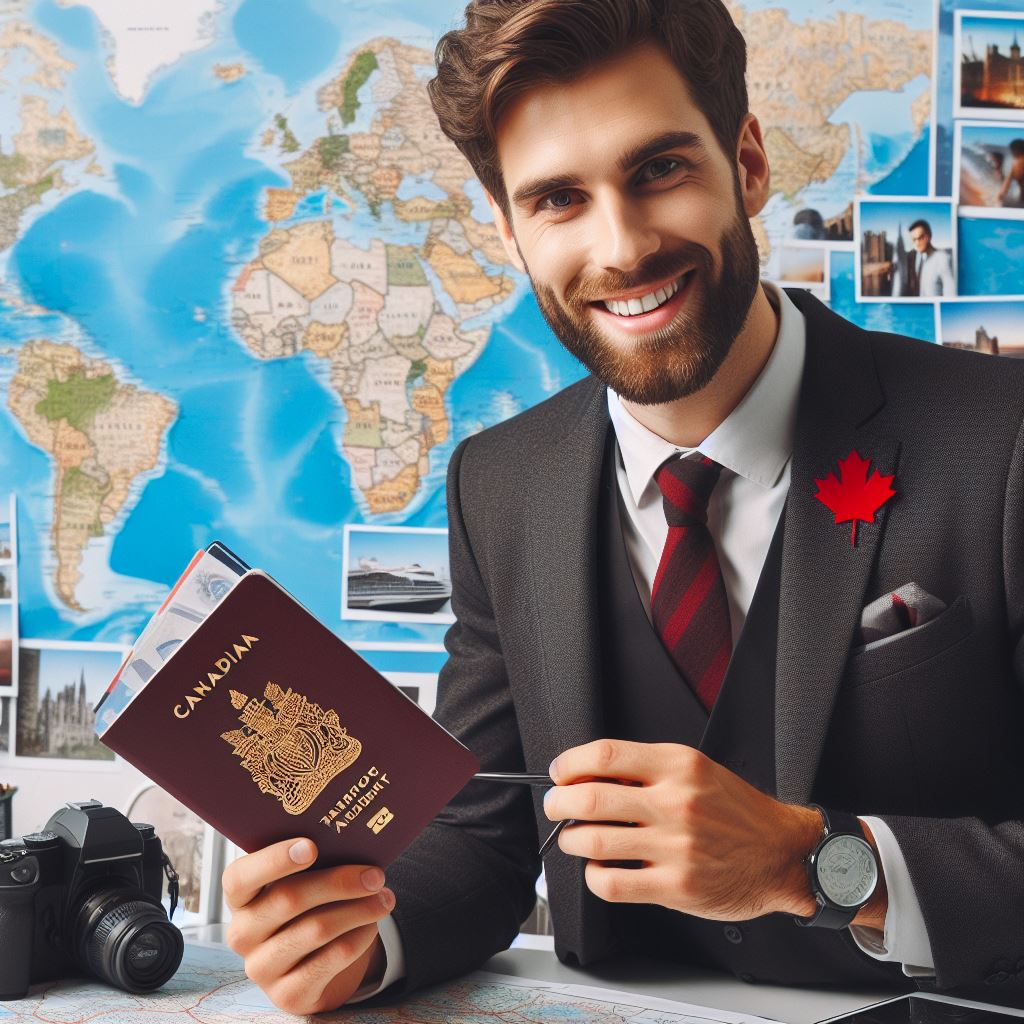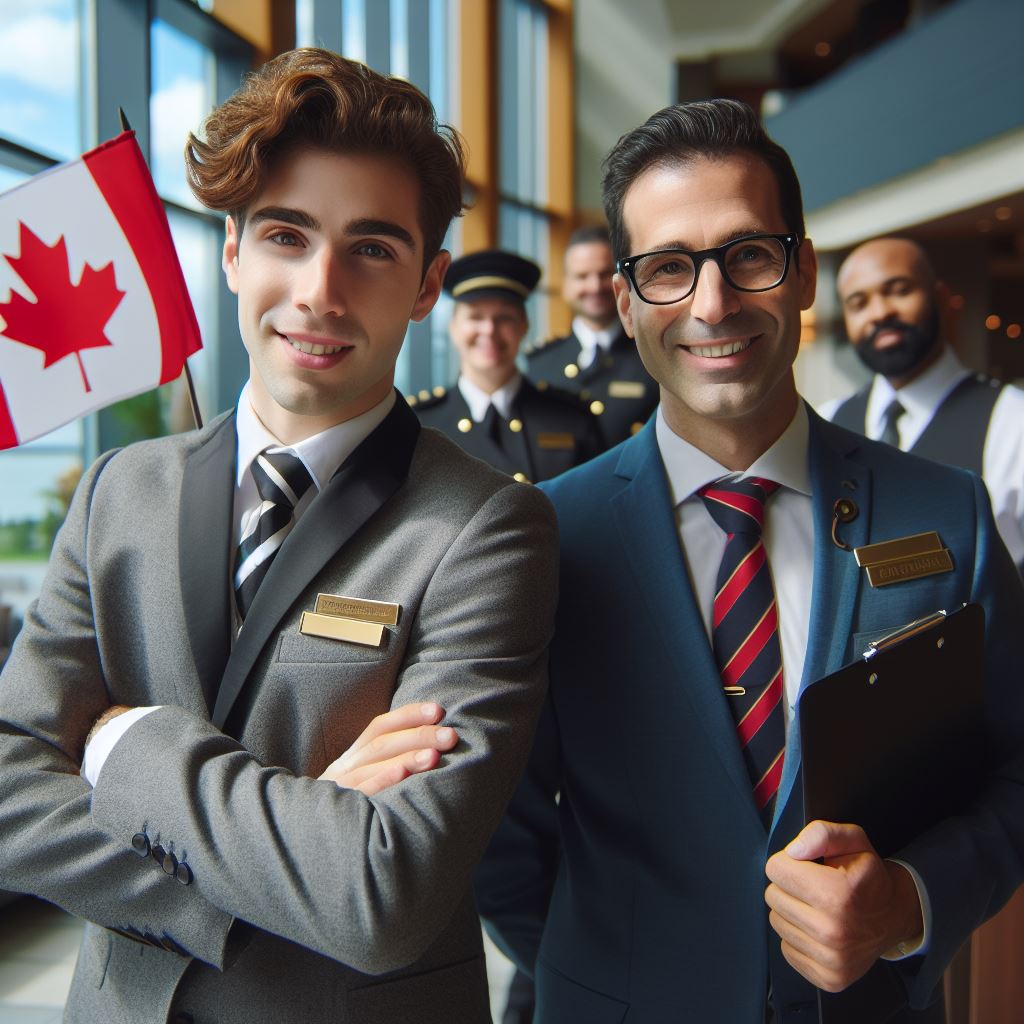Introduction
Travel agents are highly valued in the tourism industry due to their expertise and guidance.
Whether booking flights, accommodations, or planning itineraries, travel agents provide valuable assistance to travelers.
To succeed in this profession, there are several key skills that every travel agent must possess.
Firstly, excellent communication skills are essential in order to effectively interact with clients and understand their needs.
Travel agents must be able to listen attentively and provide clear and concise information.
Secondly, strong organizational skills are crucial.
Travel agents need to be able to manage multiple bookings, handle paperwork, and stay on top of changing travel regulations and requirements.
Having good problem-solving skills is another important attribute for travel agents.
They should be able to think quickly on their feet and come up with creative solutions when faced with unexpected situations or challenges.
Moreover, travel agents must possess exceptional customer service skills.
Providing exceptional service, being patient, and showing genuine care for clients can greatly enhance the overall travel experience.
Lastly, staying up-to-date with industry trends and being technologically savvy is vital.
With the advent of online booking platforms and digital travel resources, travel agents should be familiar with technology and use it to their advantage.
In general, being a travel agent requires a combination of interpersonal, organizational, problem-solving, and technological skills.
By mastering these essential skills, travel agents can provide exceptional service and ensure memorable travel experiences for their clients.
Excellent Customer Service Skills
Importance of Building Relationships with Clients
As a travel agent, excellent customer service skills are essential for success in this industry.
Building strong relationships with clients is of utmost importance.
Establishing trust and rapport ensures customer satisfaction, promoting repeat business and referrals.
By knowing clients’ preferences and needs, travel agents can offer personalized experiences, enhancing overall customer satisfaction.
Effective Communication and Interpersonal Skills
Effective communication and interpersonal skills are vital tools for travel agents.
Clear communication, both verbal and written, is necessary when interacting with clients, ensuring that all travel logistics and details are properly understood.
Active listening allows agents to grasp clients’ desires and make tailored recommendations.
Moreover, strong interpersonal skills enable agents to establish connections and negotiate effectively with suppliers, securing the best deals for their clients.
Handling Customer Complaints and Resolving Issues
Handling customer complaints and resolving issues promptly is crucial for maintaining positive client relationships.
Travel agents should possess problem-solving abilities to address complaints in a timely manner.
Demonstrating empathy reassures clients that their concerns are acknowledged, leading to increased trust and loyalty.
Offering compensation or alternative solutions can rectify unsatisfactory experiences and salvage customer satisfaction.
Personalized Service and Attention to Detail
Furthermore, providing personalized service and attention to detail sets travel agents apart.
Paying attention to clients’ specific preferences and needs enables agents to tailor their recommendations and create unique travel experiences.
Attending to every detail, from transportation to accommodation, guarantees a smooth and hassle-free trip for clients.
Anticipating and fulfilling clients’ needs throughout their journey showcases professionalism and fosters customer satisfaction.
In essence, possessing excellent customer service skills is essential for every travel agent.
Building and maintaining strong client relationships, effective communication, and interpersonal skills, handling complaints efficiently, and delivering personalized service with attention to detail are all crucial aspects of the job.
Aspiring travel agents should strive to develop these skills to succeed in the competitive travel industry.
Strong Destinations Knowledge
A travel agent must possess a thorough understanding of popular travel destinations.
They should be knowledgeable about the best places to visit, the top attractions, and the local customs.
To effectively assist clients, a travel agent must also have knowledge of local customs, laws, and cultural etiquette.
This will ensure that they can provide accurate and relevant travel information to their clients.
In addition to general travel knowledge, a travel agent should also be familiar with various modes of transportation, accommodations, and attractions within different destinations.
This will allow them to provide recommendations and suggestions based on their clients’ preferences and budget.
Thorough Understanding of Popular Travel Destinations
A travel agent must have in-depth knowledge of popular travel destinations, including the best time to visit, major attractions, and local specialties.
This will enable them to create customized itineraries for their clients.
For example, if a client wants to visit Paris, the travel agent should be able to provide information about the Eiffel Tower, the Louvre Museum, and the best neighborhoods to explore.
This level of expertise will help the travel agent cater to the specific needs and interests of their clients.
Knowledge of Local Customs, Laws, and Cultural Etiquette
Understanding local customs, laws, and cultural etiquette is essential for a travel agent.
Different destinations have different norms and expectations, and it is crucial for the agent to provide this information to their clients.
For instance, in some cultures, it may be customary to remove shoes before entering someone’s home or a place of worship.
The travel agent should be aware of such practices and inform their clients beforehand.
Similarly, being familiar with the laws and regulations of a particular destination can prevent any legal issues for the clients.
This includes knowledge about documentation requirements, visa procedures, and local regulations.
Ability to Provide Accurate and Relevant Travel Information
A travel agent should have the ability to provide accurate and up-to-date travel information to their clients.
This includes details about flights, accommodation options, and local transportation services.
For example, if a client is interested in traveling to Bali, the agent should be able to provide information about the best airlines serving that route, the recommended hotels, and the transportation options within the island.
Additionally, the agent should stay informed about any travel advisories or safety concerns that may affect their clients’ trip.
This will help ensure the safety and well-being of the travelers.
Familiarity with Various Modes of Transportation, Accommodations, and Attractions
A travel agent should be familiar with the different modes of transportation available in various destinations.
This includes knowledge of airlines, trains, buses, and ferries, as well as their schedules and prices.
Similarly, the agent should be aware of the range of accommodation options, from luxury hotels to budget hostels, and be able to recommend suitable choices based on the clients’ preferences and budget.
Unlock Your Career Potential
Visualize a clear path to success with our tailored Career Consulting service. Personalized insights in just 1-3 days.
Get StartedFurthermore, a travel agent should have knowledge of popular attractions and activities in different destinations.
This will enable them to suggest itineraries and make reservations for their clients, ensuring a memorable travel experience.
Read: Crisis Management in the Hotel Industry
Exceptional Organizational Skills
When it comes to being a successful travel agent, having exceptional organizational skills is crucial.
The ability to manage multiple travel itineraries and bookings is an absolute must.
Ability to manage multiple travel itineraries and bookings
In the fast-paced world of travel, a travel agent must be able to juggle and keep track of numerous itineraries and bookings for their clients. This requires excellent organizational skills.
By staying organized and keeping all travel arrangements well-documented, a travel agent can ensure that no important details are missed, and their clients’ trips go smoothly.
Proficiency in using travel reservation systems and technology
Another essential skill for travel agents is proficiency in using travel reservation systems and technology.
With the advancement of technology, travel agents now rely heavily on online booking platforms and other digital tools to arrange travel for their clients.
Being able to navigate these systems efficiently is a must.
Moreover, having knowledge of popular travel websites and online resources is also crucial.
Travel agents need to compare prices, check availability, and make reservations using these platforms to provide the best options for their clients.
Arranging travel logistics promptly and efficiently
Travel agents need to be prompt and efficient in arranging travel logistics for their clients.
This involves coordinating flights, accommodations, transportation, and any additional services required, such as tours or activities.
The ability to quickly secure these arrangements is essential in meeting clients’ expectations.
Being organized allows the travel agent to handle multiple requests simultaneously and provide timely solutions to their clients’ travel needs.
Attention to detail in documentation and paperwork
A travel agent must pay close attention to detail when it comes to documentation and paperwork.
This includes ensuring that all necessary travel documents, such as passports and visas, are in order and up to date.
Any errors or oversights can lead to travel disruptions and inconvenience for the client.
Moreover, accurate documentation is essential for record-keeping and future reference.
Keeping track of client preferences and important details allows the travel agent to provide personalized service and anticipate their clients’ needs.
In a nutshell, exceptional organizational skills are vital for every travel agent.
The ability to manage multiple itineraries, proficiency in reservation systems and technology, arranging travel logistics promptly, and attention to detail in documentation ensure client satisfaction and successful trips.
Read: Best Cities in Canada for Tour Guides to Work

Sales and Marketing Acumen
A travel agent must possess strong sales and marketing skills to succeed in the industry.
This involves effectively identifying and understanding customer needs and preferences, promoting travel packages and deals, negotiating with suppliers, and staying updated with industry trends and promotions.
Identifying and understanding customer needs and preferences
Being able to identify and understand customer needs is crucial for a travel agent.
By doing so, they can provide personalized recommendations and suggestions that meet the customer’s preferences and expectations.
This requires active listening and effective communication skills to gather relevant information.
Promoting travel packages and deals effectively
A travel agent must be skilled in promoting travel packages and deals to attract potential clients.
This involves creating compelling marketing materials, utilizing social media platforms, and leveraging their network to reach a wide audience.
Effective persuasion and presentation skills are essential to convince clients to choose their offered packages.
Negotiating with suppliers to secure the best rates for clients
An important aspect of a travel agent’s role is negotiating with suppliers to secure the best rates and deals for their clients.
This requires strong negotiation skills, the ability to build relationships with suppliers, and staying updated with the latest industry rates.
By doing so, they can offer competitive prices to their clients and enhance customer satisfaction.
Keeping up with industry trends and promotions
A successful travel agent must constantly stay updated with industry trends, promotions, and new travel destinations.
This involves regularly reading industry publications, attending travel expos, and subscribing to newsletters.
By staying informed, a travel agent can provide up-to-date and relevant information to their clients, increasing their credibility and trustworthiness.
In fact, sales and marketing acumen are crucial skills for travel agents to possess.
By effectively identifying and understanding customer needs, promoting travel packages and deals, negotiating with suppliers, and staying updated with industry trends, travel agents can provide exceptional service to their clients, increase sales, and maintain a competitive edge in the travel industry.
Read: How to Get Certified as a Tour Guide in Canada
Problem-Solving and Crisis Management Abilities
A travel agent must possess a range of problem-solving and crisis management abilities that are essential in handling unexpected situations, resolving travel-related issues, providing alternative solutions, and managing client expectations.
These skills enable a travel agent to be resourceful and calm during emergencies, ensuring a smooth and stress-free travel experience for their clients.
Quick thinking and adaptability in unexpected situations
Travel agents are often faced with unexpected situations such as last-minute flight cancellations, severe weather conditions, or sudden changes in itineraries.
In these moments, it is crucial for a travel agent to think quickly and adapt to the situation at hand.
They must be able to come up with alternative solutions in a timely manner, ensuring that their clients’ travel plans can proceed as smoothly as possible.
Resolving travel-related issues such as flight cancellations or delays
Flight cancellations and delays are common occurrences in the travel industry.
When faced with these issues, a travel agent must take immediate action to assist their clients.
This may involve rebooking flights, finding alternative transportation options, or providing necessary accommodations.
By efficiently resolving these travel-related issues, travel agents can minimize the impact on their clients’ itineraries and ensure a satisfactory travel experience.
Providing alternative solutions and managing client expectations
In situations where travel plans are disrupted, a travel agent must be able to provide alternative solutions that meet their clients’ needs and preferences.
This may involve suggesting alternative destinations, rearranging itineraries, or modifying travel arrangements.
Additionally, travel agents must effectively manage client expectations by clearly communicating any changes or limitations, ensuring that clients are well-informed and prepared for any adjustments to their travel plans.
Being resourceful and calm during emergencies
Emergencies can arise during travel, such as accidents, medical emergencies, or natural disasters.
In such cases, a travel agent must remain calm and composed while taking immediate action to ensure the safety and well-being of their clients.
They must be resourceful in locating necessary resources, such as medical facilities or emergency accommodations, and efficiently coordinate any necessary assistance or arrangements.
In short, problem-solving and crisis management abilities are vital skills for every travel agent.
Through quick thinking, adaptability, and the ability to resolve travel-related issues, travel agents can provide alternative solutions and effectively manage client expectations.
Additionally, being resourceful and calm during emergencies allows travel agents to ensure the safety and well-being of their clients.
By possessing these skills, travel agents can excel in their roles and deliver exceptional travel experiences for their clients.
Read: Top Skills Every Canadian Tour Guide Needs
Knowledge of Travel Regulations and Insurance
A travel agent’s role goes beyond booking flights and accommodations.
They must also have a comprehensive understanding of travel regulations and insurance to assist their clients effectively.
Here are key aspects of this skillset:
Understanding visa requirements and travel regulations
One crucial area where travel agents must excel is in understanding visa requirements and travel regulations.
Different countries have varying entry regulations that depend on factors like citizenship, purpose of visit, and length of stay.
Agents must keep up with these regulations to avoid any hassles or complications for their clients.
By proactively staying informed about visa requirements, travel agents can guide their clients through the application process and help them gather the necessary documents.
They can provide accurate and up-to-date information about visa costs, processing times, and any supplementary requirements.
Hence, a travel agent must continuously update their knowledge of visa regulations and stay informed about changes to avoid any disruptions in their clients’ travel plans.
Knowledge of relevant travel insurance policies and coverage
Another essential aspect of being a skilled travel agent is having knowledge of relevant travel insurance policies and coverage.
Travel insurance protects clients from unforeseen circumstances such as trip cancellations, medical emergencies, or lost baggage.
A travel agent must understand the various insurance policies available and be able to recommend the most suitable options to their clients based on their specific needs.
They should explain the coverage details, including medical expenses, trip interruption, emergency evacuation, and any exclusions or limitations.
By providing expert advice on travel insurance, travel agents not only ensure their clients’ well-being but also protect their clients’ investments in their travel plans.
Assisting clients with necessary documentation and travel requirements
Helping clients with necessary documentation and travel requirements is a fundamental duty of travel agents.
They must guide their clients through the process of obtaining passports, visas, and any additional permits required for travel.
This assistance includes advising clients on the documents needed to secure a visa, coordinating with embassies or consulates, and ensuring that all necessary paperwork is complete and accurate.
Agents should also apprise their clients of any travel advisories or warnings that may affect their destination choice.
By taking charge of the documentation process, travel agents alleviate their clients’ stress and enhance their overall travel experience.
Ensuring compliance with legal and insurance obligations
Lastly, travel agents must ensure compliance with legal and insurance obligations during the booking process.
They should be well-versed in the laws relating to travel and tourism in their country as well as international regulations.
Additionally, travel agents need to ensure that their clients’ travel arrangements meet the requirements of relevant travel insurance policies.
This includes informing clients about cancellation policies, coverage limits, and any other obligations outlined in the insurance contract.
By ensuring compliance with legal and insurance obligations, travel agents protect both their clients’ interests and their own professional reputation.
In review, a travel agent must possess a thorough knowledge of travel regulations and insurance.
This includes understanding visa requirements and travel regulations, having expertise in relevant travel insurance policies, assisting clients with necessary documentation, and ensuring compliance with legal and insurance obligations.
By excelling in these areas, travel agents can provide exceptional service and guarantee smooth travels for their clients.
Continuous Learning and Adaptability
In order to thrive and succeed as a travel agent, it is crucial to possess continuous learning and adaptability skills.
The ever-evolving nature of the travel industry demands that professionals stay up-to-date with industry trends and be willing to embrace new technologies and digital platforms.
Keeping updated with industry trends and changes
A skilled travel agent understands the significance of staying informed about the latest industry trends and changes.
This can be achieved by regularly reading travel publications, attending industry conferences, and engaging in online forums and discussions.
By staying updated, travel agents can better understand the shifting needs and preferences of travelers, allowing them to provide personalized and tailored experiences.
Willingness to embrace new technologies and digital platforms
The travel industry has witnessed a rapid digital transformation, with the emergence of various online platforms and technologies.
A successful travel agent must be open to and willing to embrace these technological advancements.
Utilizing online booking portals, mobile applications, and social media platforms can greatly enhance the efficiency and ease of delivering excellent service to clients.
Moreover, being well-versed in digital marketing strategies enables travel agents to reach a wider audience and increase brand visibility.
Participating in relevant training and professional development opportunities
Continuous learning is vital to professional growth in any field, and travel agents are no exception.
Engaging in relevant training and professional development opportunities can significantly enhance skills and expertise.
Travel agents can attend workshops and courses that focus on specific areas of the travel industry, such as destination knowledge, customer service, or sales and marketing techniques.
They can also pursue certifications offered by professional organizations to demonstrate their commitment to excellence.
Adapting to the evolving needs and preferences of travelers
Successful travel agents recognize the importance of adaptability in catering to the ever-changing needs and preferences of their clients.
They must be flexible in order to meet the demands of a diverse range of travelers.
This adaptability encompasses understanding and responding to different travel interests, age demographics, and cultural backgrounds.
It also involves adapting to new travel restrictions, safety protocols, and emerging destination trends.
By staying adaptable, travel agents can ensure that their services remain relevant and appealing to a constantly evolving customer base.
To summarize, continuous learning and adaptability are essential skills for travel agents to remain competitive and successful in the industry.
By keeping updated with industry trends, embracing new technologies, participating in relevant training and development opportunities, and adapting to changing traveler needs, these professionals can thrive in the dynamic world of travel.
Conclusion
A successful travel agent must possess a range of essential skills to provide exceptional service to clients and thrive in the industry.
Recapitulating the significant skills every travel agent must possess:
- Excellent Communication: The ability to effectively communicate with clients, suppliers, and colleagues is crucial in understanding and meeting the specific needs of travelers.
- Knowledge of Destinations: A broad understanding of popular tourist destinations, their attractions, and local customs helps create personalized itineraries and provide valuable advice.
- Attention to Detail: Being meticulous in organizing travel arrangements, including flights, accommodations, transfers, and activities, ensures a smooth and enjoyable trip for clients.
- Problem-Solving: Possessing the ability to quickly and efficiently resolve any issues or hiccups that may arise during a client’s trip is essential for maintaining their trust and satisfaction.
- Customer Service: Delivering exceptional customer service by being friendly, patient, and responsive to client inquiries and concerns is paramount in building long-lasting relationships.
The importance of these skills cannot be overstated.
They form the foundation for a successful travel agent to provide outstanding service and exceed client expectations.
By possessing these skills, travel agents can ensure that clients have memorable and stress-free experiences.
For aspiring travel agents, it is vital to focus on developing and enhancing these essential skills.
Taking courses, gaining practical experience, and staying updated on industry trends will contribute to their growth and success.
As the travel industry continues to evolve, the demand for skilled and knowledgeable travel agents remains high.
By capitalizing on these skills, aspiring agents can carve out a rewarding and fulfilling career.
We invite you to share your thoughts and experiences. What skills do you believe are crucial for a travel agent?
How have these skills made a difference in your own travel experiences? Join the conversation in the comments section below!




